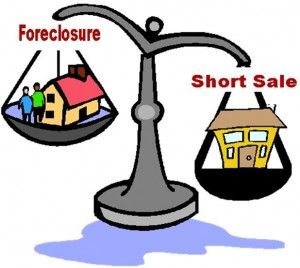On behalf of our Florida clients with BP oil spill claims we are pleased about a recent victory, but the fight is still underway. The well known BP oil spill settlement agreement reached in mid-2012 shortly before trial resulted in a settlement claims procedures and formulas that were intended to simplify matters of evidentiary proof — has now resulted in two different appeals with two different results. Although the recent January 10, 2014 appellate decision ruled against BP, they have not yet given up Bloomberg reports.
Two different three judge panels from the same appellate court have now ruled upon BP’s objections to the settlement claims payout process. One panel ruled for BP last month and directed the local trial level judge to modify the procedures to address certain concerns. The second panel, as recently as January 10, 2014 ruled that the settlement agreement was valid and would proceed.
But make no mistake, this January 10, 2014 decision is a huge victory for the plaintiffs seeking economic damages to their businesses as a result of the oil spill. Especially in the Tampa Bay region, where it is difficult to show a direct causal link when oil didn’t slosh up on our doorsteps. But speaking to many of my clients, they are convinced that the tourists stopped coming, and this impact trickled down to all aspects of the economy. Many went out of business entirely because their margins weren’t enough to handle the losses.
 Reboot Your Life: Tampa Student Loan and Bankruptcy Attorney Blog
Reboot Your Life: Tampa Student Loan and Bankruptcy Attorney Blog


 Just as our Tampa Bay, Florida BP oil spill claims are heading toward the finish line, the rules are changing. We believe the new narrower guidelines will likely have a larger impact on our Florida based claims due to the increased distance from the oil spill than states such as Louisiana. Like many of our Florida counterparts, our law firm began filing claims early in the year. Because of the volume of claims received in the Spring of 2013, the estimated payout time increased from what was 60-90 days to 6-9 months. Now lossess will be re-evaluated under the new rules as a result of last week’s hearing.
Just as our Tampa Bay, Florida BP oil spill claims are heading toward the finish line, the rules are changing. We believe the new narrower guidelines will likely have a larger impact on our Florida based claims due to the increased distance from the oil spill than states such as Louisiana. Like many of our Florida counterparts, our law firm began filing claims early in the year. Because of the volume of claims received in the Spring of 2013, the estimated payout time increased from what was 60-90 days to 6-9 months. Now lossess will be re-evaluated under the new rules as a result of last week’s hearing. The new
The new  Fannie Mae and Freddie Mac’s position is that they will not agree to a principal reduction in a mortgage modification. So our Florida foreclosure defense and bankruptcy clients are out of luck when their home is worth a lot less than the balance owed. This is their position even after a homeowner has filed bankrutpcy and is no longer personally liable for the underlying debt.
Fannie Mae and Freddie Mac’s position is that they will not agree to a principal reduction in a mortgage modification. So our Florida foreclosure defense and bankruptcy clients are out of luck when their home is worth a lot less than the balance owed. This is their position even after a homeowner has filed bankrutpcy and is no longer personally liable for the underlying debt. A three judge panel
A three judge panel  Traditionally in Florida, doing a short sale rather than allowing a foreclosure sale to occur is considered much better for your credit. Not so much difference in credit score per se, but mostly for future governmental financing when it is time to buy a home again.
Traditionally in Florida, doing a short sale rather than allowing a foreclosure sale to occur is considered much better for your credit. Not so much difference in credit score per se, but mostly for future governmental financing when it is time to buy a home again. There are new TPD (disability) regulations going into effect on July 1, 2013 to help our student loan clients in Florida and elsewhere. These new changes apply only to applications received after July 1, 2013. In a nutshell, the significant changes are designed to make an application much more streamlined!
There are new TPD (disability) regulations going into effect on July 1, 2013 to help our student loan clients in Florida and elsewhere. These new changes apply only to applications received after July 1, 2013. In a nutshell, the significant changes are designed to make an application much more streamlined!  Bank of America simply cannot get it right. Our Tampa, Florida law firm sees violations regularly whether it involves foreclosure or bankruptcy. Of particular note these violations are all one way and they put money in BofA’s pocket. If they were truly errors, wouldn’t they immediately be corrected once pointed out and wouldn’t the errors go both ways?
Bank of America simply cannot get it right. Our Tampa, Florida law firm sees violations regularly whether it involves foreclosure or bankruptcy. Of particular note these violations are all one way and they put money in BofA’s pocket. If they were truly errors, wouldn’t they immediately be corrected once pointed out and wouldn’t the errors go both ways?  Another tool to help Florida homeowners keep their home and avoid foreclosure will be available this summer.
Another tool to help Florida homeowners keep their home and avoid foreclosure will be available this summer. Short sales are good for a number of reasons:
Short sales are good for a number of reasons: